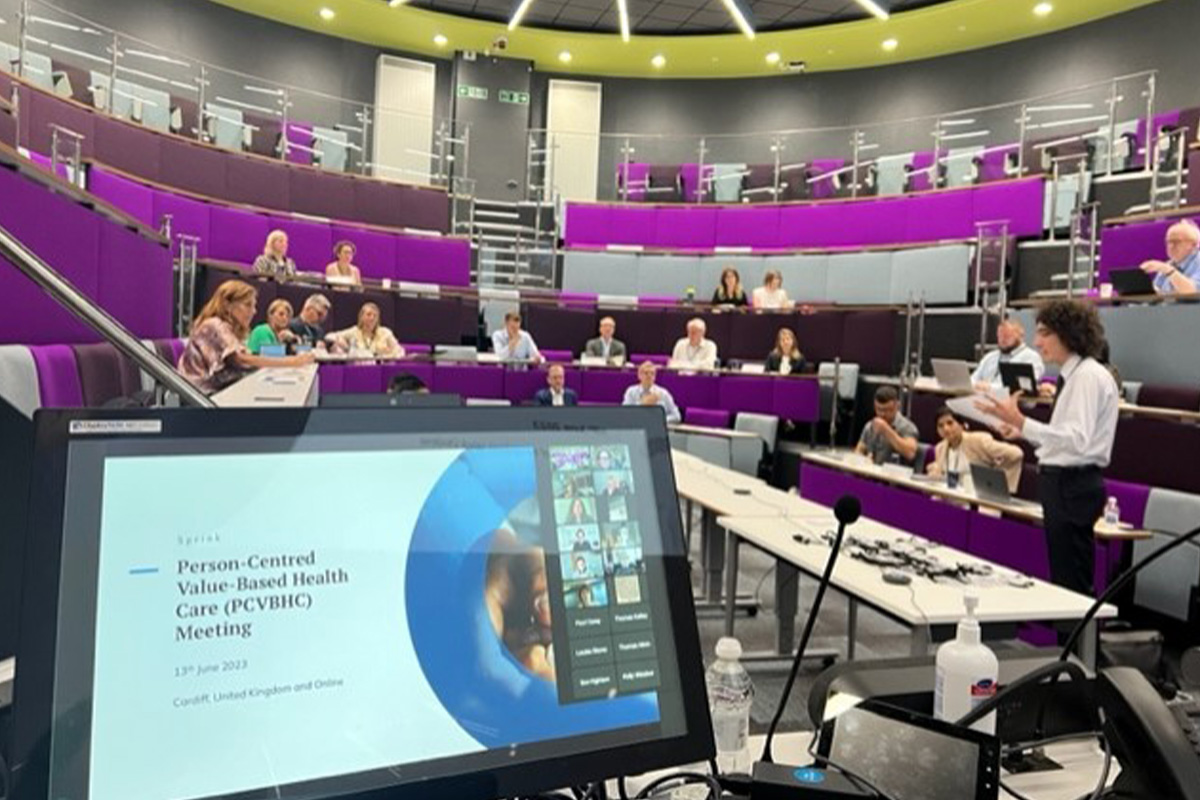At Sprink, we believe sustainable changes in health care can only happen when all stakeholders align and work together towards a shared vision of success. Person-Centred Value-Based Health Care (PCVBHC) provides that vision. As part of the services we provide in PCVBHC, we act as an expert, neutral facilitator in developing and implementing transformative partnerships between health care systems and industrial stakeholders, such as medical technology or biopharmaceutical companies, with a focus on delivering the outcomes that matter most to people sustainably.
Professor Arie Franx is a Senior Advisor at Sprink, guiding the development and implementation of health care system-industry partnerships with a focus on PCVBHC. This interview explores Arie’s vision and perspectives around developing and implementing such partnerships.
What is your vision for health care system-industry partnerships with a focus on PCVBHC?
Professor Arie Franx: my journey with Value-Based Health and Care (VBHC) started with outcome measurement and small-scale implementation of VBHC principles. When these projects grew bigger, I felt it would be beneficial to involve pharmaceutical and medical technology stakeholders and find a way to balance their commercial goals and the interests of the patients.
What are some of the barriers that exist towards achieving this vision?
Unfortunately, there is widespread suspicion between health care providers and industry stakeholders. Both parties often feel that their interests are not aligned. On one side, health care providers are concerned that revenue is the primary driver of pharmaceutical and medtech companies. On the other side, industry actors can be under the impression that health care providers are trying to get the lowest prices for their products. This can create tension despite both parties genuinely wanting to create value for the patients.
What are some key principles to support developing and implementing a health care system-industry partnership with a focus on PCVBHC?
Professor Arie Franx: the first principle is to have a clear rationale for the partnership and shared goals. There usually are two main reasons that underpin a collaboration. The first one is synergy. By working together, we can create something we could never create on our own. The second one is financial. By working together, we can be more efficient and save costs. It is important to have the feeling that with a specific partner, you can do better together than if you were on your own or with another partner.
The second principle is trust. Without trust, you can’t have a successful collaboration. Trust is something that is built over time through mutual experience. The best way to build this trust is to start working together on small projects or programmes with limited risk of negative consequences in case they are unsuccessful. By starting with small successes, both parties can become more comfortable in taking more risks together.
Do you see the Netherlands as a country ready to embrace health care system-industry partnerships with a focus on PCVBHC?
Professor Arie Franx: the Dutch health care and care system is a good place for VBHC initiatives because it is an organised, regulated market. There are programmes led by the ministry of economy to support the collaboration between public and private organisations.
About Arie Franx:
Professor Arie Franx trained as a doctor in obstetrics and gynaecology in the Netherlands and worked as a consultant for various Dutch health care organisations, including the University Medical Center Utrecht. In 2019 he was appointed at Erasmus Medical Centre in Rotterdam as the chair of Obstetrics, with his teaching focused on fetal development and maternal health. Since 2017, he has been the co-chairman of The Linnean Initiative, a nationwide network for implementing value-based health care in the Netherlands.
—
This is the second interview of a three-part series on implementing health care system-industry partnerships with a focus on PCVBHC. In the next interview, Dr Thomas Kelley, Founder and CEO of Sprink, will share his views on the topic. The previous interview of the series with Prof. Pat O’Mahony is available here.




